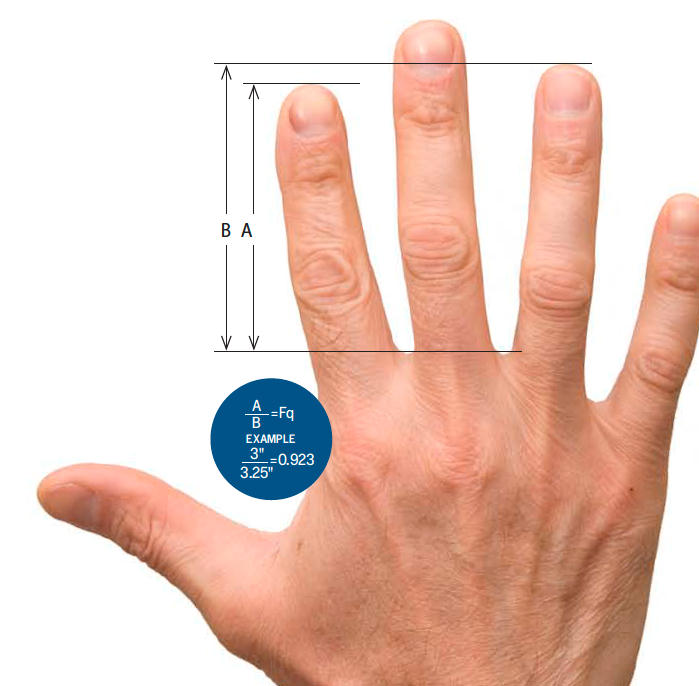According to Discover Magazine, Researchers have discovered that a quick study of the hands, more specifically, the lengths of the index and ring fingers, can tell a lot about a person’s personality and risk of disease.
In boys, “during fetal development there’s a surge in testosterone in the middle of the second trimester” that seems to influence future health and behavior, says Pete Hurd, a neuroscientist at the University of Alberta.
One easy-to-spot result of this flood of testosterone: a ring finger that’s significantly longer than the index finger.
Scientists are not at the point where they can factor in finger length to arrive at a diagnosis, but they’ve gathered evidence that shows how this prenatal hormone imbalance can affect a person for life, from increasing or decreasing your risk of certain diseases, to predicting how easily you get lost or lose your temper.
Researchers continue to study what sparks these hormonal changes and have begun looking at environmental chemical exposure, stress levels and diet during pregnancy.
Measure your index and ring fingers, base to tip. (Most of the studies used the right hand.) Divide the length of your index finger by the length of your ring finger to determine the digit ratio, or finger quotient (Fq).
A longer ring finger results in an Fq of less than 1 and a more “masculine” hand shape.
How Do You Measure Up?
Increased verbal aggression Fq < 1:
The shorter your index finger, the sharper your tongue: In both men and women, a lower Fq can predict more verbal sparring.
Improved athletic ability Fq < 1:
A greater surge of prenatal testosterone can be an indicator of high levels of achievement in sports, as well as a mental toughness in athletics.
In one study, college varsity athletes (male and female) were found to have shorter index fingers than other students.
Improved sense of direction Fq < 1:
In women, a more masculine digit ratio tends to predict a better sense of direction, backing up past research that found men tend to have better spatial cognition than women.
More physical aggression Fq < 1:
Men with shorter index fingers are more likely to pick fights. Women with the same hand shape are more likely to react with aggression after being provoked.
More risk taking Fq < 1:
Men who experience a higher surge of prenatal testosterone, and thus have longer ring fingers, tend to be risk takers. One example: The most successful financial traders tend to have the longest fourth fingers. These behavior patterns seem to apply only to men.
Healthier knees Fq > 1:
An index finger that’s shorter than the ring finger can be a sign of knee osteoarthritis risk, particularly in women, compared with people whose fingers are equal lengths, or who have a longer index finger.
Reduced risk of oral cancer Fq > 1:
A high digit ratio, those with very little difference between the index and ring finger, or with a longer index finger, was found among men with oral cancer, compared with men with pre-cancerous oral lesions or no lesions, according to one all-male study.
Lower prostate cancer risk Fq > 1:
Men with long index fingers and shorter ring fingers have a 33 percent reduced risk of prostate cancer. If they’re younger than 60, the risk is even less by 87 percent.

